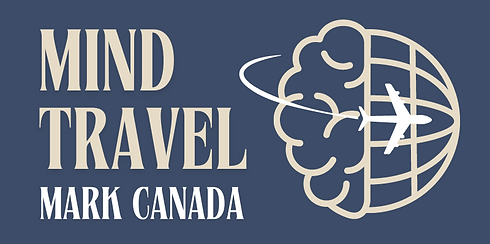Mark Canada, Ph.D.

Issue #12
August 31, 2024
-
More from Mark:
.png)
"Is that even a word?" I hear this question a lot--when speakers catch themselves saying something that sounds like a word, but perhaps isn't in any dictionary, or when someone hears someone else say something that sounds fishy. (Maybe some of you asked that question of some of the reduplicatives in last week's column. "Higgledy-piggledy, really?")
This question points to a larger question: "What counts as a word?" It's a fascinating question, one that takes us into the realms of both lexicology (the study of words) and lexicography (the work of dictionary-making).
As you surely have guessed by now, I pay a lot of attention to words, and I have noticed over the years that some people--many, I suspect--think that words have to be "official," as if they have to undergo some scrutiny, pass a test, earn a stamp of approval from someone or something. It's a natural assumption, something akin to the process by which a bill becomes a law. "I'm just some sounds, and I'm hanging around . . ." (Can you tell I grew up on Schoolhouse Rock?)
The very existence of a dictionary lends credence to this belief. People have come to believe that "making it into the dictionary," so to speak, is how a word becomes official. There's some truth to that notion, since dictionaries lend authority to words. I used to be a newspaper copy editor, and my fellow editors and I consulted a dictionary when we were editing copy. If something we saw in an article was not in that specific dictionary, it probably didn't make it into print.
I'm also a Scrabble player (a cut-throat one if you ask my wife), and I'm not going to allow you to put down qixijaz without showing me the entry for it in the dictionary. (I mean, come on, you could earn at least 197 points on that play if you scored a double letter on the z and a triple word on the whole thing--and, yes, I did check.)
Like so many other things in the world, however, the notion of "official status" for a word is complicated. What do we say about something that your family says, but is not in a dictionary? Is it a word? What about new slang that is very common, but not yet in a dictionary? (This latter phenomenon was especially important before the Internet, back when dictionaries were printed books and came out years apart.)
Linguists realize that human beings invent a lot of new words--thousands every year, surely--and that these new words do not need to appear in a dictionary or earn some other kind of formal or informal approval to count as words. On its most basic level, after all, a word is a sound or collection of sounds that conveys meaning (or, in the case of structure words such as definite and indefinite articles, serves some kind of function). A newly coined word can convey meaning, even if it's not in any dictionary, as long as the audience understands it.
That last part is the key: if someone understands your meaning, then your creation is functioning as a word. It doesn't need anything else. For example, just this morning, I came across the word ASMR. Do you know it? I didn't. According to Merriam-Webster's online dictionary, ASMR means "a pleasant tingling sensation that originates on the back of the scalp and often spreads to the neck and upper spine, that occurs in some people in response to a stimulus (such as a particular kind of sound or movement), and that tends to have a calming effect." Merriam-Webster dates this word's entrance into English in 2011. (How did this word-lover miss something that's been circulating for more than a decade? My son says I don't spend enough time on the Internet. I, for one, think that's not such a bad thing.)
Lexicographers who work for Merriam-Webster and other dictionary makers will tell you that their job is not to make up words, but to record words that other people have invented. In other words, ASMR and other words start in speech or writing by ordinary people--non-lexicographers, so to speak. At some point before ASMR appeared in any dictionary, someone used it, and someone else understood it (probably thanks to an explanation by the speaker). If the word spreads sufficiently and achieves widespread recognition, it eventually makes its way into a dictionary, but it was a word before any dictionary published it because it was doing the work of a word.
Next time, we will look more closely at the phenomenon of creating new words. Why and how do we do it? (Here's a hint: there are no lab coats or beakers involved.) Linguists typically refer to the process of creating words as "coinage," but I would like to suggest a different term. Let's call it qixijaz.
About Mark

A longtime English professor, scholar, and author, Mark Canada, Ph.D., writes and lectures on a variety of authors and subjects in the fields of literature, language, history, and leadership.
More from Mark
My scheduler and I are booking lectures for the summer and fall. Please send an email to mark.canada@icloud.com to pitch some possible dates for your group. Here are a few topics I can cover:
-
"The Literature of the Sea"
-
"The Literary Mediterranean"
-
"Puzzling Poe"
-
"Frederick Douglass: Author, Abolitionist, Activist"
-
"Franklin in France: Diplomat, Celebrity, and Flirt"
-
"Benjamin Franklin: Scientist, Diplomat, Author--and Role Model?"
To book Mark for a speaking engagement, click on the "Contact Mark" link below and send a message with dates and requested topics.